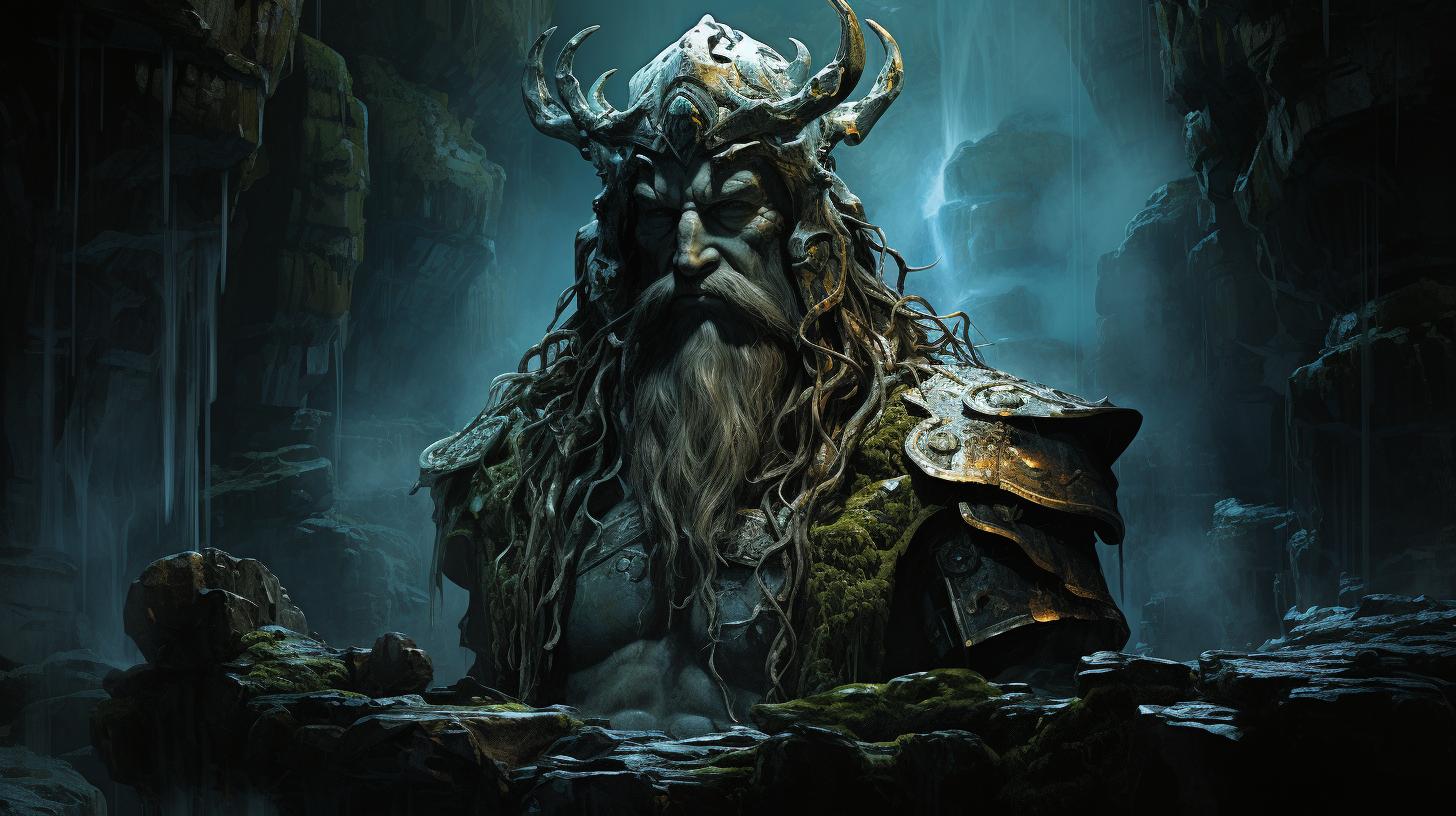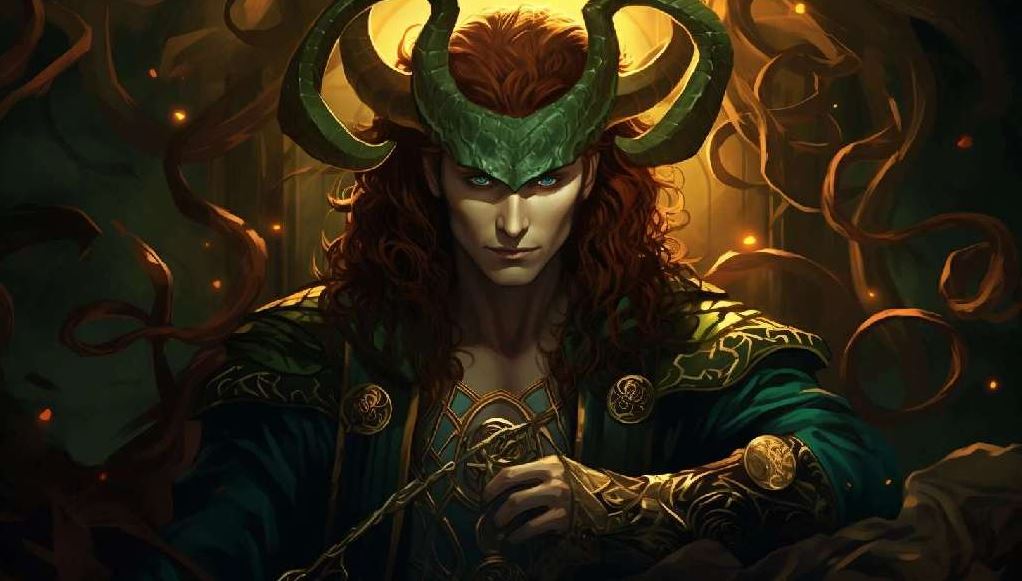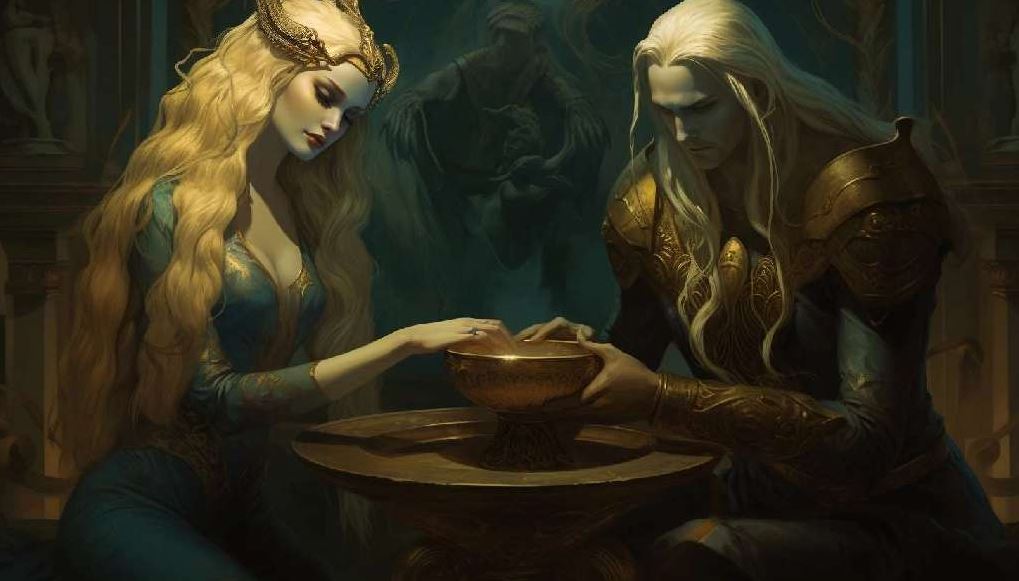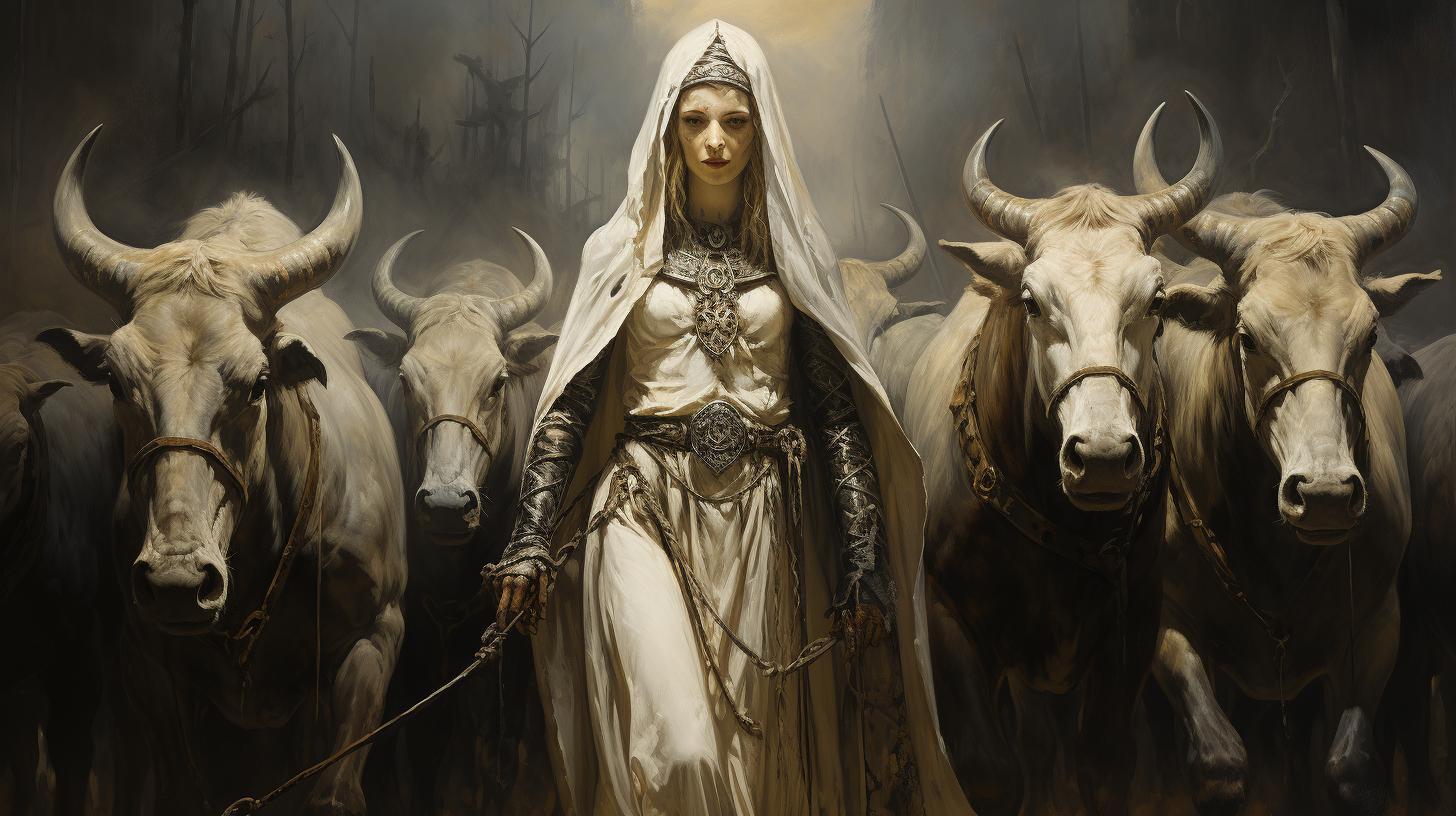Kvasir Norse God: A Mythological Tale of Wisdom and Tragedy
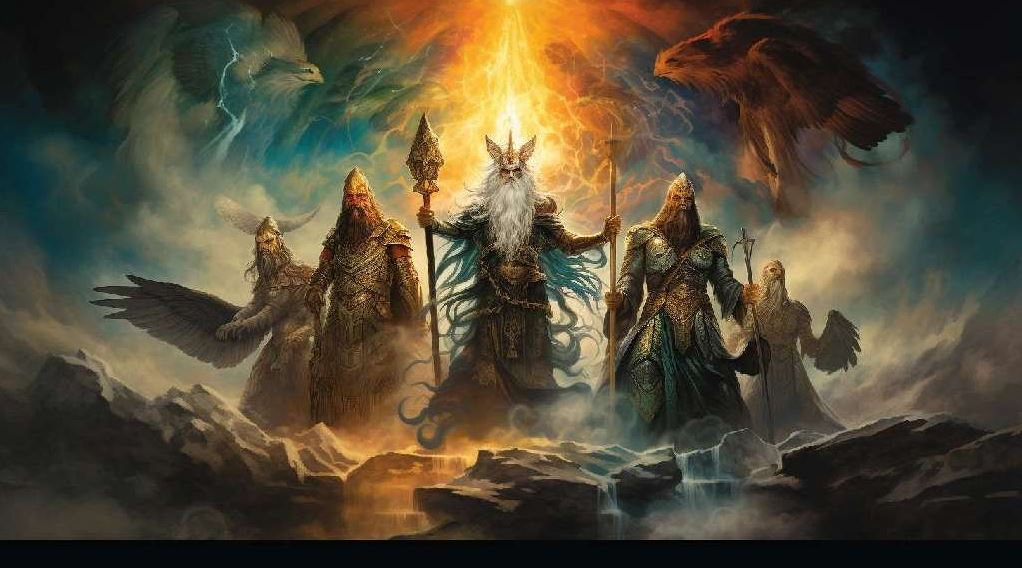
In Norse mythology, Kvasir, born from the union of the Æsir and Vanir gods, is a figure of great significance. Known as the wisest being, Kvasir possessed unparalleled knowledge and held the answers to all questions.
However, his tragic fate befell him at the hands of the dwarves Fjalar and Galar. They used his blood mixed with honey to create the poetic mead, which bestowed wisdom and inspiration.
This article explores the origins, cultural significance, and interpretations of the Kvasir myth in Norse society. The conflict between Æsir and Vanir, the creation of Kvasir, and his unfortunate demise shall be examined alongside the creation of poetic mead and its connection to broader mythological themes.
The legacy and interpretations of the Kvasir myth will also be explored, shedding light on its speculated origins and potential connections to other mythologies. Discover how the myth of Kvasir resonates in Norse culture and society, shaping symbolism and providing insights into the wisdom and tragedy that define this mythological tale.
The Origins of Kvasir in Norse Mythology
In Norse mythology, the story of Kvasir’s origins is closely intertwined with the conflict between Æsir and Vanir, two groups of gods in the Norse pantheon.
The Conflict Between Æsir and Vanir
The Æsir, comprised of gods like Odin, Vili, and Vé, represented spiritual and mental states. The Vanir, on the other hand, were associated with fertility and agricultural aspects.
The two factions engaged in conflicts and battles, reflecting the social and clan interactions in Norse society.
The Creation of Kvasir
After a prolonged war, the Æsir and Vanir managed to reconcile their differences and establish peace. As a symbol of this newfound unity, they created Kvasir, a being born from the combined saliva of both groups.
Kvasir possessed unparalleled wisdom and was considered the wisest being in the Norse mythological realm.
This act not only robbed the world of Kvasir’s wisdom but also introduced the transformative power of the poetic mead into Norse mythology.
Although the story of Kvasir’s existence and demise has been recorded in works like Snorri Sturluson’s Prose Edda, there are debates regarding its authenticity. Some scholars speculate that the myth of Kvasir may have connections to similar stories in Hindu mythology.
Thus, the origins of Kvasir in Norse mythology offer a fascinating glimpse into the intricate and complex web of divine relationships, conflicts, and tragedies that define the Norse pantheon.
The Significance of Kvasir in Norse Culture
In Norse culture, Kvasir holds a profound significance as a symbol of wisdom and knowledge. Let’s delve into the different aspects that highlight the importance of Kvasir in Norse mythology and society.
Kvasir’s Role as the Wisest Being
Kvasir, born from the union of Æsir and Vanir, possessed unparalleled wisdom. He was renowned as the epitome of intellectual enlightenment, possessing answers to all questions. His role as the wisest being elevated him to a revered status among the gods and mortals alike.
Kvasir’s wisdom served as a beacon of guidance, inspiring others to seek knowledge and understanding.
The Creation of Poetic Mead with Kvasir’s Blood
Tragically, Kvasir’s life was cut short when he was slain by the dwarves Fjalar and Galar. To immortalize his wisdom, they mixed his blood with honey, creating the poetic mead. This mead bestowed divine inspiration and linguistic mastery upon those who consumed it.
The creation of poetic mead using Kvasir’s blood signifies the preservation and dissemination of knowledge through artistic expression.
Kvasir’s Influence on Norse Mythology
Kvasir’s existence and fate had a profound impact on Norse mythology. His story serves as a cautionary tale about the fragility of wisdom and the dangers that jealousy and betrayal pose to knowledge.
Kvasir’s tragic demise and the subsequent creation of poetic mead unfold within the larger narrative of divine conflicts and intricate relationships between the Æsir and Vanir. Furthermore, Kvasir’s myth exemplifies the Norse belief in the transformative power of storytelling and the preservation of cultural heritage.
- Symbol of wisdom and enlightenment
- Tragic fate and immortalization through poetic mead
- Influence on Norse mythological narratives
As we explore the significance of Kvasir in Norse culture, we gain insights into the veneration of wisdom, the power of artistic expression, and the intricate tapestry of Norse mythology.
The Legacy and Interpretations of the Kvasir Myth
In Norse mythology, the story of Kvasir has left a lasting legacy and sparked speculations regarding its origin and authenticity. This intriguing myth has also been examined for possible connections to other mythologies in order to better understand its significance within a broader cultural context.
Furthermore, the impact of the Kvasir myth on Norse society and its symbolism within their culture cannot be overlooked.
Speculations about the Myth’s Origin and Authenticity
While the story of Kvasir has been recounted in the works of Snorri Sturluson, some doubt remains regarding its authenticity. Scholars have engaged in debates questioning the true origins of the myth and whether it has evolved over time.
Various theories have emerged, suggesting possible influences from other cultural traditions or oral folklore. These speculations contribute to the ongoing fascination with the enigmatic tale of Kvasir.
Connections to Other Mythologies
The captivating story of Kvasir has sparked interest in exploring potential connections to mythologies beyond Norse culture. Comparative mythology studies have identified striking similarities between Kvasir and related figures in other ancient mythological traditions.
Some scholars have proposed a potential connection to a similar myth in Hindu mythology, linking different cultural narratives and highlighting universal themes of wisdom, sacrifice, and creation.
Impact on Norse Society and Cultural Symbolism
The tale of Kvasir holds significant cultural symbolism within Norse society. It serves as a reminder of the precious value bestowed upon wisdom and knowledge. Kvasir’s tragic fate underscores the fragility of wisdom in the face of treachery and serves as a cautionary tale.
The creation of poetic mead using Kvasir’s blood further emphasizes the importance of poetic inspiration and the notion of intellectual enrichment imparted by art and literature.
- The Kvasir myth symbolizes the enduring quest for wisdom and the human desire to obtain knowledge.
- It highlights the delicate balance between wisdom and vulnerability, showcasing the consequences of its misuse.
- The concept of poetic mead also reflects Norse society’s admiration for art and its contribution to intellectual growth.
- Kvasir’s story permeates Norse cultural identity, serving as a reminder of the importance of wisdom in decision-making and personal development.
- His legacy resonates with the values and aspirations of a society that revered knowledge and intellectual pursuits.
As scholars continue to study and interpret the Kvasir myth, its impact on Norse society and its connections to other mythological traditions remain subjects of fascination and intrigue.
…..












